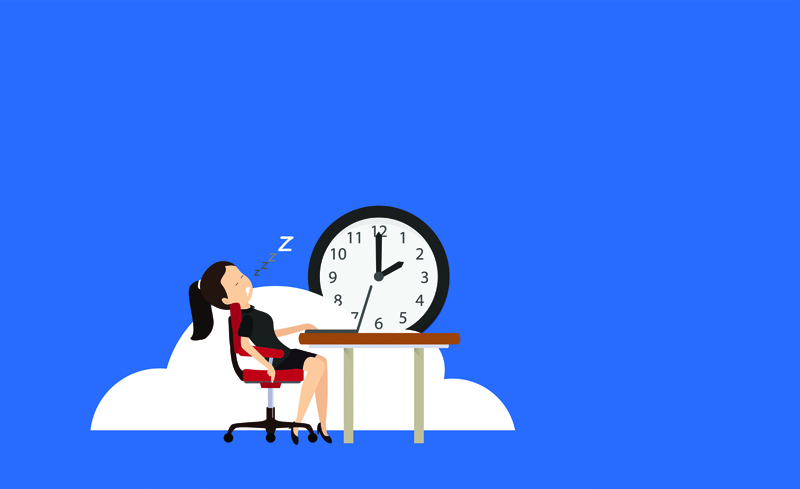Sleeping Habits and Health
How much can a late nighter affect me?” . You must be thinking. While it may not be obvious initially, sleep deprivation for a prolonged period has serious negative impact on your heatlh.

HAVEN’T WE ALL had a late nighter or two? Or have they even dragged on for a month or two? Some people sleep late because they have one too many work, some because they need to meet their deadlines, some to talk to their partners, some to play their games and others simply because they just cannot stop reading the cliffhanger book on their stand.
Many of us know that an adult needs at least 8 hours of sleep a day to look, feel and function at our best. But have you wondered why it is said to be so? Dr. Swarup Shrestha from Star Hospital tells us here in detail about some of the things that will be catching up to us if we do not get enough sleep.
What we need to understand first about sleep is the quality and quantity of it. Quality represents the depth of sleep. The depth of one’s sleep is affected by how many times microdisturbances wake us up. Quantity is the number of hours a person sleeps in a day which differs according to the age of the person. An indication of having a good sleep is feeling fresh when you wake up. The mornings where you do not want to wake up, are not alert or productive and have no particular interest in anything means either the quality or the quantity of your sleep was negatively affected.
If and when you do not get sufficient amount of sleep in a day, it creates sleep debt. The interest on your sleep debt increases at a much higher rate than your loan interest. You keep on adding to your pile of sleep debt when you do not get adequate quality or quantity of sleep.
Mental effects
There are a lot of ways sleep affects our mental well being. For most parts sleep affects our ability to stay alert and focused, and our cognitive functions. Being sleep deprived also means you take a longer amount of time to process a simple task, let alone a complex one.
Behavioral effects
A sleep-deprived person will be sleepy anytime. Pair that with monotonous work and watch him or her fall asleep within minutes. How many times have you seen a friend sleep during a lecture or a co-worker dozing off at work? Don’t we all say, “Look at that lazy guy/girl?” It may not always be because the person is lazy, simply because he/she is sleep deprived.
Effects on social life
Teachers call you out for falling asleep in their class, and shame you for it in front everyone because they think you are lazy. Tired as you are, you doze off to sleep or not complete tasks on time. And before you know it you are tagged as a lazy person at work. This has its toll on your social life, which could turn out to be the source of your stress.
The stress, in turn, will not let you sleep, which creates a vicious cycle and you are left being that lazy guy or who sleeps in the class or at work.
Personality effects
However could sleep affect my personality, you must be wondering? Losing interest, becoming increasingly dull, losing concentration, becoming stressed and irritated over small mistakes are all consequences of an inadequate amount of sleep. People cannot seem to get out of their foul mood and cannot derive pleasure or happiness in small things like going to movies, watching their kids do adorable things or spending time with their loved ones. They cannot help but be highly sensitive and stressed about one thing or the other.
Physical effects
Here are the effects that you will notice in your physical health:
• Lack of sleep affects the respiratory function in our body. It will take more time to adjust to the different respiratory patterns we need during the day and night. Lack of sleep also ends up becoming a contributing factor for an asthma patient.
• Lack of sleep also affects our circulatory functions. It disrupts the circadian rhythm, hence offsetting our body’s alarm clock which is responsible for creating alertness in the body on when to do what. Sleep cycle disruption is also a contributing factor that leads to accumulation of cholesterol in the blood vessels, which compromises the heart’s cardiac function. The stress generated from lack of sleep is also largely responsible for heart attacks.
• Disruption in sleeping habits affects a person’s food habits. People who do not get enough sleep have more cravings and this ends up hampering their digestive system.


